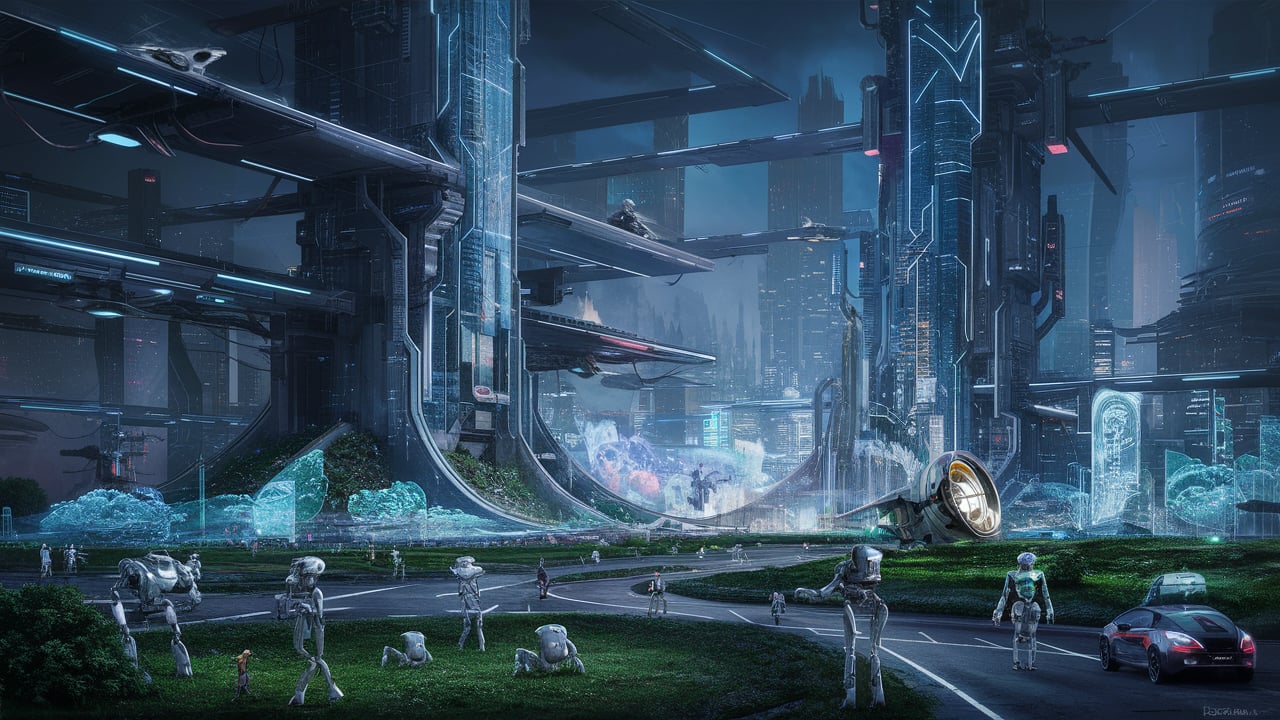The Impact of Technology on Modern Society
Technology has transformed nearly every aspect of our lives, from how we communicate to how we work and entertain ourselves. It continues to evolve, becoming more sophisticated and integrated into daily routines. In this article, we’ll explore the various ways technology has impacted modern life, the emerging trends, and what the future may hold.
1. Communication Revolution: The Age of Connectivity
One of the most significant impacts of technology is the transformation of communication. In the pre-digital era, staying in touch required landlines or physical mail, which were slow and often inconvenient. Today, the landscape is dominated by instant messaging apps, video conferencing, and social media platforms.
The rise of smartphones and high-speed internet allows people to connect instantly, regardless of geographical barriers. Platforms like WhatsApp, Zoom, and Facebook Messenger make it possible to have real-time conversations with people worldwide. This development has revolutionized personal and professional communication, particularly with remote work and globalization increasing the need for cross-border connectivity.

Key technology keywords: communication technology, mobile apps, social media, smartphones, global connectivity, remote work tools.
2. Healthcare Advancements: Improving Life Expectancy
The integration of technology in healthcare has significantly improved patient outcomes and accessibility. Through advancements like telemedicine, wearable health trackers, and artificial intelligence (AI) in diagnostics, healthcare is more efficient and patient-cantered than ever before.
Wearable devices like the Apple Watch and Fitbit monitor heart rates, sleep patterns, and physical activity, helping individuals track their health in real-time. AI-powered systems are being used to diagnose conditions like cancer, sometimes more accurately than human doctors. The future of healthcare technology is promising, with robotic surgeries and 3D printing of organs already in development stages.
Key technology keywords: healthcare technology, telemedicine, wearable devices, AI in healthcare, health trackers, robotic surgery, 3D printing.
3. Education Technology: Learning in the Digital Era
Technology has reshaped education by making it more accessible, interactive, and personalized. The use of online learning platforms, virtual classrooms, and e-learning tools has grown, particularly since the onset of the COVID-19 pandemic. Tools like Khan Academy, Coursera, and Udemy offer access to quality education from anywhere in the world.

Additionally, Artificial Intelligence is being employed to customize learning experiences. Adaptive learning software tailors content to a student’s progress, helping to address individual weaknesses. Educational apps and gamified learning platforms are making education more engaging and effective, especially for younger students.
Key technology keywords: education technology, e-learning, virtual classrooms, AI in education, online learning platforms, adaptive learning.
4. Smart Homes: Technology at Home
Smart home technology has made it possible to control lighting, security, and even household appliances from a single device, often a smartphone. Internet of Things (IoT) devices like smart thermostats, security cameras, and smart speakers (e.g., Amazon Echo, Google Home) provide convenience, energy savings, and improved security.
These devices work together through a centralized system, allowing homeowners to monitor and manage everything remotely. Smart homes are also integrating AI for more intuitive responses, such as voice-activated controls or smart assistants that learn user habits over time.
Key technology keywords: smart homes, IoT devices, home automation, smart speakers, AI-powered devices, energy efficiency.
5. Transportation: The Rise of Autonomous Vehicles
One of the most exciting developments in technology is the rise of autonomous vehicles. Companies like Tesla, WeMo, and Uber are leading the charge in developing self-driving cars. These cars use a combination of AI, machine learning, and sensors to navigate roads and respond to real-time conditions without human intervention.
The rise of electric vehicles (EVs) is another area where technology is making a significant impact. These eco-friendly alternatives to traditional gas-powered cars are expected to reduce greenhouse gas emissions and reliance on fossil fuels. The future of transportation technology includes innovations like flying cars, hyperloop systems, and smart transportation grids.
Key technology keywords: autonomous vehicles, electric cars, self-driving technology, AI in transportation, Tesla, transportation technology, green energy.
6. Cybersecurity: Protecting Digital Assets
With the increase in technology use comes a higher risk of cyber threats. Cybersecurity has become one of the most crucial areas of technological advancement, as data breaches, phishing attacks, and ransomware are growing concerns. As more businesses shift online, cloud security, AI-driven security measures, and blockchain are being deployed to secure sensitive data.
Governments and organizations are also investing in encryption technologies and biometric security systems to protect user identities. In 2023, AI-based security systems are expected to continue playing a vital role in identifying and neutralizing threats in real-time.
Key technology keywords: cybersecurity, data protection, cloud security, AI in cybersecurity, blockchain security, encryption technologies, biometric security.

7. The Future of Work: Automation and AI
Automation has already disrupted industries like manufacturing, where robots and AI are increasingly performing repetitive tasks faster and more efficiently than humans. As AI continues to evolve, it will likely reshape the workforce, affecting everything from customer service to data analysis.
The rise of remote work and gig economies is also heavily supported by technological innovations. Cloud-based collaboration tools like Slack, Microsoft Teams, and Zoom enable distributed teams to work seamlessly. While there are concerns about automation displacing jobs, new opportunities in AI development, software engineering, and digital marketing are emerging.
Key technology keywords: AI in the workplace, automation technology, robotics, remote work tools, gig economy, workforce automation, cloud-based collaboration.
8. Entertainment: Streaming, Gaming, and Beyond
Technology has revolutionized the entertainment industry, changing how we consume media and interact with content. The rise of streaming platforms like Netflix, Hulu, and Disney+ has drastically reduced the demand for traditional cable TV. With virtual reality (VR) and augmented reality (AR), gaming has also entered a new era of immersive experiences.
The introduction of cloud gaming platforms, such as Google Stadia and Xbox Cloud Gaming, allows players to stream games without the need for high-end hardware. Entertainment is evolving, and the future may bring even more interactive and immersive experiences with the development of metaverse technologies.
Key technology keywords: streaming platforms, cloud gaming, virtual reality, augmented reality, entertainment technology, Netflix, metaverse.
Conclusion
Technology’s influence on modern life is undeniable, and it will only continue to grow. From improving healthcare to revolutionizing how we work and communicate, technology has touched nearly every part of our daily lives. As AI, automation, and IoT evolve, we can expect even more significant advancements in the near future, shaping a world that is more interconnected, efficient, and reliant on digital solutions.
